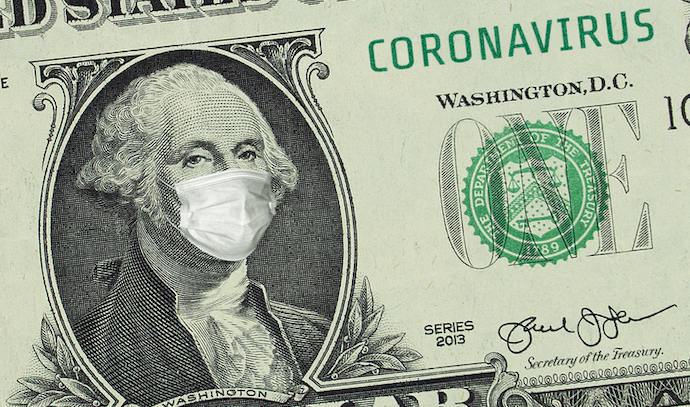Coronavirus Pandemic’s Impact on Insurer, Consumer Trends in 2021
Insurers and enrollees shifted behavioral patterns in response to the coronavirus pandemic in 2020 and the repercussions continue to have an impact in 2021.

Source: Getty Images
- The coronavirus pandemic has left its mark on health insurer and enrollee trends, an eHealth report confirmed.
The report based its findings on over 2,200 anonymous survey responses from the American public and nearly 4,280 responses from Medicare beneficiaries. The survey was fielded from October 12 to October 25, 2021. Additionally, the researchers interviewed 16 insurance industry representatives, whose companies collectively covered over 100 million consumers.
“It’s not clear yet what America’s health care future will look like, but the continuing impact of the COVID pandemic and debates among policymakers over the future of government programs are shaping consumer experiences and expectations,” the report stated.
Consumers and insurers alike face uncertain circumstances, even as the coronavirus pandemic becomes increasingly manageable.
Consumer trends
Overall, enrollees were most concerned about out-of-pocket healthcare spending, with 42 percent saying that this is their primary coverage concern. More than one out of every five respondents (22 percent) said that monthly premiums were their main concern. Others named keeping their providers in-network and covering medications as chief concerns.
However, when analyzing the Medicare population specifically, it became clear that Medicare beneficiaries were more likely to be concerned about having their providers in network than the general populace.
Over half of the participants supported mandating coronavirus vaccines among employees of private employers, while more than a third reject this approach. Nearly two-thirds of the respondents would receive a coronavirus vaccine booster shot if they were eligible.
Most of the respondents who indicated that they were unvaccinated cited concerns related to side effects or the conviction that the coronavirus vaccine would not shield them from the disease. Over a third of the respondents stated that they had not received a coronavirus vaccine because they did not trust the government or pharmaceutical companies.
The results highlighted Medicare beneficiaries’ broad range of experiences, backgrounds and perspectives.
Regardless of political affiliation, seniors demanded more federal action on prescription drug costs and supported the public-private model for Medicare instead of a fully government-run program. Seniors are divided on assigning consequences to coronavirus vaccine hesitancy.
The report also underscored the opportunities for better member education and serving a higher share of beneficiaries.
Keeping members informed about their healthcare options and benefits is a significant challenge. According to the eHealth survey, 39 percent of Medicare beneficiaries glean Medicare information from online sources, 37 percent learn about Medicare through their insurer, and 30 percent use government websites to stay informed about Medicare.
AARP, television, family or friends, and radio all played a role in keeping beneficiaries informed about Medicare as well.
Over nine in ten respondents said that they wanted Medicare to offer supplemental benefits. Benefits such as vision, dental and hearing benefits are not included in traditional Medicare. However, these are popular offerings in the Medicare Advantage space.
Insurer trends
Over half of the 16 insurer participants told the researchers that they had spent more on member medical care due to the coronavirus pandemic, with most citing an increase of 10 percent or less. However, 45 percent of the respondents saw no change in their medical care costs.
Most payers indicated that the coronavirus pandemic would not cause premiums to rise. However, a minority of respondents (6 percent) anticipated an increase of over 20 percent. Nor did payers seem likely to change health plan benefits due to the pandemic with 57 percent stating that they are somewhat unlikely or very unlikely to change benefits.
But for the 44 percent of insurers who expected to see a change in benefits, 100 percent expected changes in telehealth coverage, 57 percent anticipated at-home medical care benefits changing, and 43 percent expected changes in meal delivery or nutritional benefits.
The survey confirmed that coronavirus-related waivers and coverage are disappearing. Almost four out of ten insurers (38 percent) said that they have or will diminish their extra coverage for coronavirus services.
The coronavirus pandemic may have a deteriorating impact on health benefits and healthcare spending, but consumers and insurers continue to perceive its influence.
